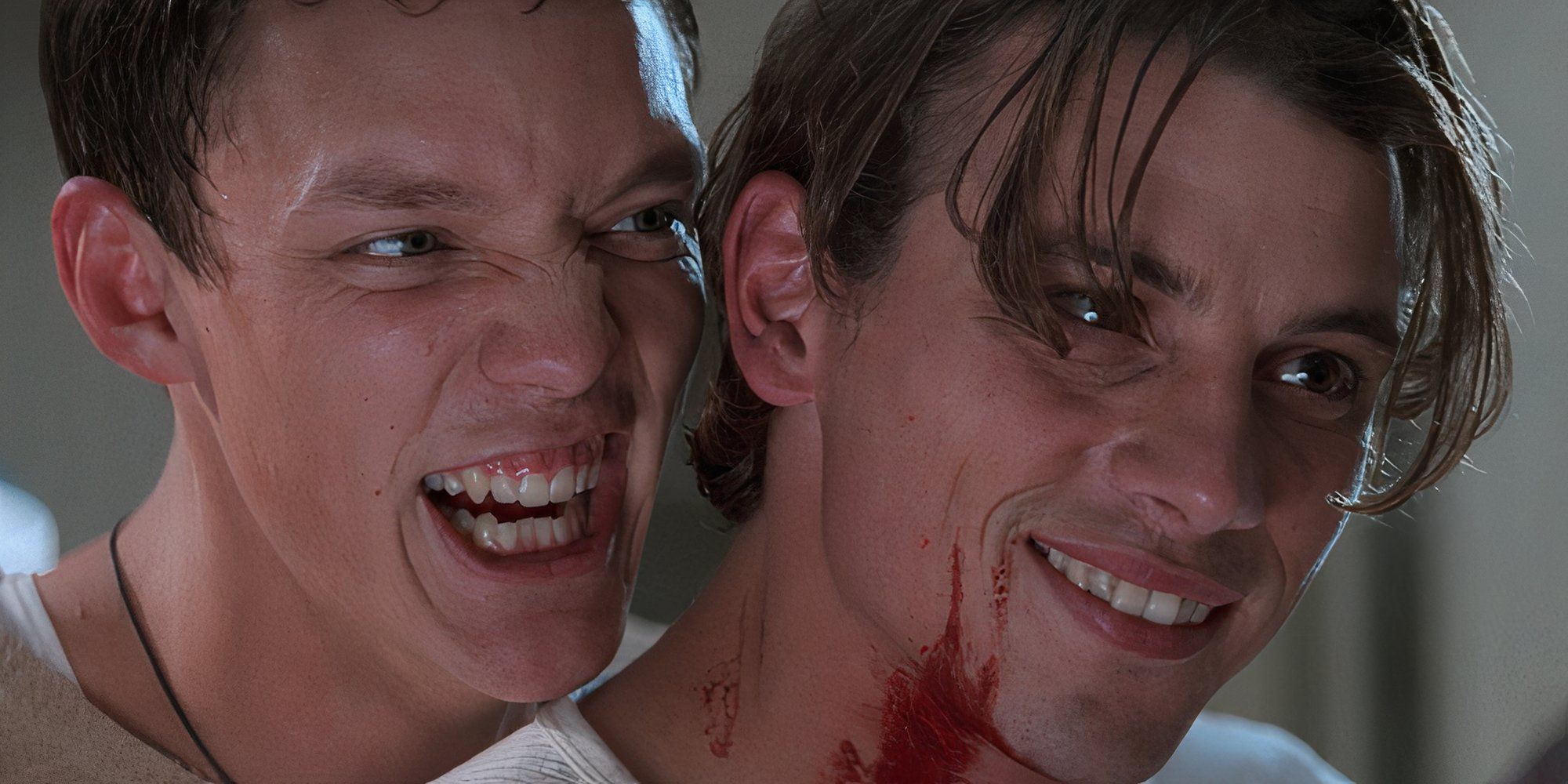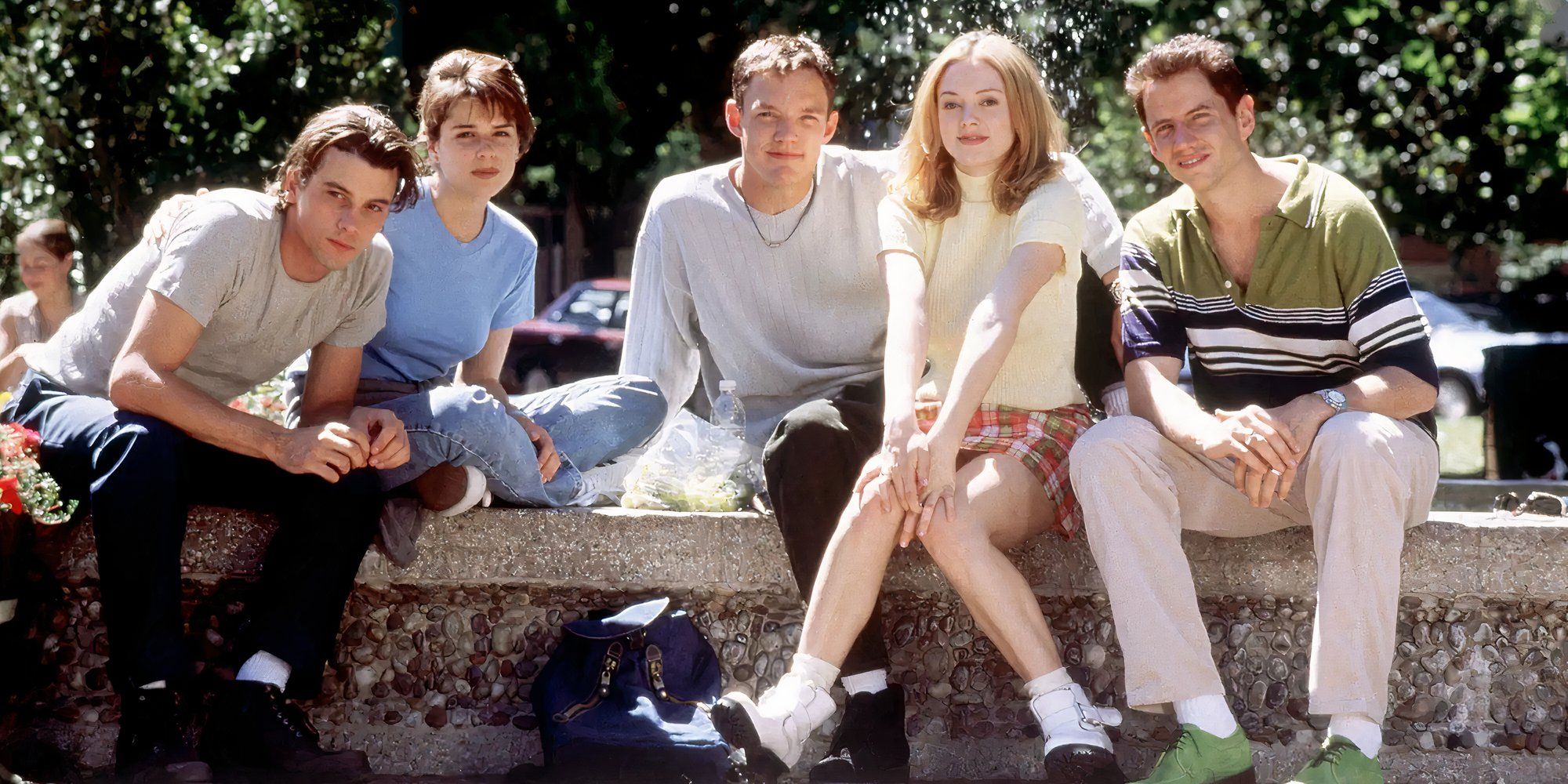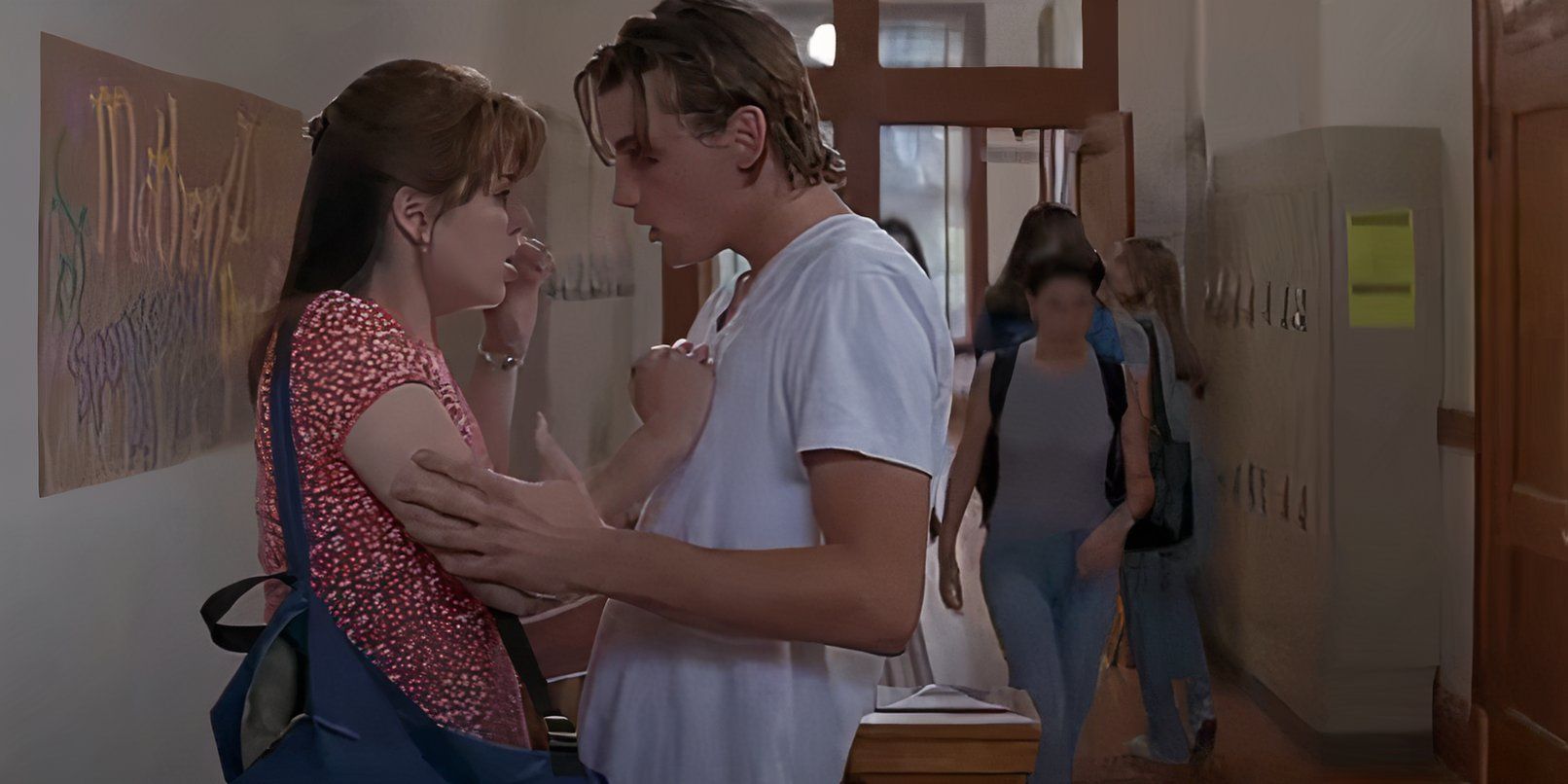
The film “Scream,” released in 1996, revolutionized the horror genre when it first came out, under the direction of Wes Craven. This groundbreaking movie was the beginning of a series that expanded to include six films and a TV show (at the time of publication, a seventh film, set for release by Paramount Pictures in February 2026, has also been announced). Ghostface, the iconic masked killer, earned a spot among the greats in horror cinema. To this very day, fans continue to quote lines and reference the monologue delivered near the end of the movie at the famous Spring Hill Estate (also known as Stu’s house, where the party took place). Movies like “The Cabin in the Woods” and “The Blackening” wouldn’t have been possible without “Scream,” as they are examples of self-referential horror.
It’s astonishing that the original cast didn’t anticipate the success of “Scream”, given its genre’s less-than-favorable standing at the time. They presumed that, like many other horror films, it would follow the same trend. However, they were unaware that the film’s impact would last nearly three decades. Furthermore, they didn’t foresee that it would evolve into a franchise with the potential to surpass $1 billion in earnings.
The Cast of Scream Didn’t Think the Movie Would Be Successful
Some actors might appear in films they predict will bomb, but that doesn’t always mean they dislike those movies. They may simply be unsure about a film’s potential success at the box office or its appeal to audiences. For example, Matthew Lillard, who played Stu Macher in the original “Scream,” admitted he had such doubts. In the book “Screaming and Conjuring” by Clark Collis, Lillard explains:
“I wasn’t convinced ‘Scream’ would be successful or that it would resonate with audiences.
Everyone who saw the film enjoyed it, yet nobody anticipated its success.
In this context, when Matthew Lillard uses “we,” he’s referring to himself and the other cast members, which included big names like Drew Barrymore, Courteney Cox, and David Arquette. Despite their star power, according to Lillard, Scream was perceived as a film destined for failure.
Matthew Lillard’s forecast proved accurate, considering the circumstances at hand. Initially, the movie “Scream” underperformed at the box office, generating just $6.4 million over 1,413 cinemas during its debut weekend. The experts anticipated a more successful run for the film due to Drew Barrymore’s popularity, who was a well-known figure then and graced the posters and marketing materials. Furthermore, Wes Craven’s reputation as a director was another draw given his previous work. Lastly, the involvement of Kevin Williamson, who was gaining recognition through his contributions to “Dawson’s Creek,” was expected to bring viewers to theaters.
Fortunately, the movie “Scream” managed to regain its footing, silencing the critics who doubted it. The buzz surrounding the film led to a 42% jump in ticket sales compared to its initial three days in cinemas. However, Skeet Ulrich, one of the stars, remained cautious about breaking out the champagne just yet. In interviews, he voiced his reservations, effectively puncturing director Wes Craven’s enthusiasm by stating that the film had not quite become a success, at least not as of then.
Initially, “Scream” didn’t gain immediate popularity, but looking back, it turned out to be a massive cultural hit. The actors, including Matthew Lillard and Skeet Ulrich, may have perceived their horror film as a complete flop at the time, unaware of its future impact.
Scream Had a Young Cast Who Were New to Making Movies



It’s interesting to note that Matthew Lillard, Skeet Ulrich, and their fellow cast members who harbored doubts about it were significantly off-base regarding the success of Scream. Part of this can be chalked up to their inexperience within the industry. For example, the film’s final girl, Neve Campbell, hadn’t made a significant impact yet. Her most notable roles prior to Scream were as Julia Salinger on the teen drama series Party of Five, and in the cult witch movie The Craft, which was also released that year, helping Campbell establish herself in Hollywood.
Just like her fellow cast members, Neve Campbell initially harbored doubts about the success of Scream. Even as box office earnings grew due to positive word of mouth, she remained unaware of the significant impact the horror movie was having. In fact, in the book Screaming and Conjuring, she is quoted as expressing this sentiment: “I didn’t fully comprehend the influence the film would have.
It turned out I had no idea about the box office earnings. My team contacted me around what I presume was week three, and they informed me that the movie Scream had raked in $30 million. Initially, I wondered if this was a poor performance, but they swiftly corrected me, saying it was actually quite impressive, even excellent!
At the onset, Campbell’s lack of experience made her oblivious to the phenomenal buzz surrounding Scream. It wasn’t until later that she and the rest of the cast, who were relatively new to the industry, came to understand the significance of the movie’s success as indicated by the box office figures.
It’s worth noting the career statuses of the main cast members when “Scream” was first released in 1996. Neve Campbell was a prominent figure, yet she didn’t have many other significant roles at that time. Matthew Lillard had acted in “Hackers,” as well as minor roles in various projects, but nothing comparable to Scream. Rose McGowan, who portrayed Tatum Riley, had been in two insignificant movies prior, only appearing in minor roles. Lastly, Jamie Kennedy, the voice behind the film’s meta commentary, was cast in “Romeo + Juliet” that same year. Before this, he had small parts in a few TV shows and films, but it wasn’t until his role as Randy Meeks that he gained significant recognition.
1996 marked a significant turning point for the , as they hadn’t fully grasped the potential of cinema, particularly within the horror genre, at that time.
The Scream Franchise Is Now Set to Cross the $1 Billion Mark
As a supporter looking back on the early days of Scream, I can understand why the original cast may have harbored doubts about the film’s success. The horror genre was in a slump, with blockbusters like Species and From Dusk Till Dawn being the exceptions that proved the rule. Most other horror films were struggling to find an audience. Furthermore, it’s important to remember that everyone involved was still relatively new to the industry at the time.
However, I am glad to say that the doubts surrounding Scream turned out to be completely unfounded. The combined six films in the franchise have already grossed an impressive $910 million at the global box office, and it’s highly likely that they will cross the $1 billion mark by 2026. It’s a testament to the vision of Wes Craven, Kevin Williamson, and everyone else involved in bringing this iconic horror franchise to life.
The scream will stand alongside other blockbuster horror films that have grossed over a billion dollars at the box office. It will be part of an elite group which includes The Conjuring, Alien, Resident Evil, It, and Saw.
Matthew Lillard, Skeet Ulrich, Neve Campbell, and other initial doubters are undeniably swallowing their words at this moment. All three have been confirmed for Scream 7, and Kevin Williamson, now occupying the director’s chair, is remaining tight-lipped about the upcoming plot twists and character developments.
The “Scream” series is a cherished and consistently high-quality horror film franchise that has continued to grow since its inception. Each subsequent installment builds upon the universe established in earlier films. Characters like Sidney Prescott, Stu Macher, and Billy Loomis are iconic figures within these movies. It’s amusing to think about how uncertain the creators were about the film’s success when it debuted in 1996. However, now the franchise has generated billions of dollars, and Ghostface shows no signs of losing momentum!
Read More
- Who Is Harley Wallace? The Heartbreaking Truth Behind Bring Her Back’s Dedication
- 50 Ankle Break & Score Sound ID Codes for Basketball Zero
- Here’s Why Your Nintendo Switch 2 Display Looks So Blurry
- 100 Most-Watched TV Series of 2024-25 Across Streaming, Broadcast and Cable: ‘Squid Game’ Leads This Season’s Rankers
- 50 Goal Sound ID Codes for Blue Lock Rivals
- Elden Ring Nightreign Enhanced Boss Arrives in Surprise Update
- How to play Delta Force Black Hawk Down campaign solo. Single player Explained
- Jeremy Allen White Could Break 6-Year Oscars Streak With Bruce Springsteen Role
- MrBeast removes controversial AI thumbnail tool after wave of backlash
- KPop Demon Hunters: Real Ages Revealed?!
2025-06-05 07:07